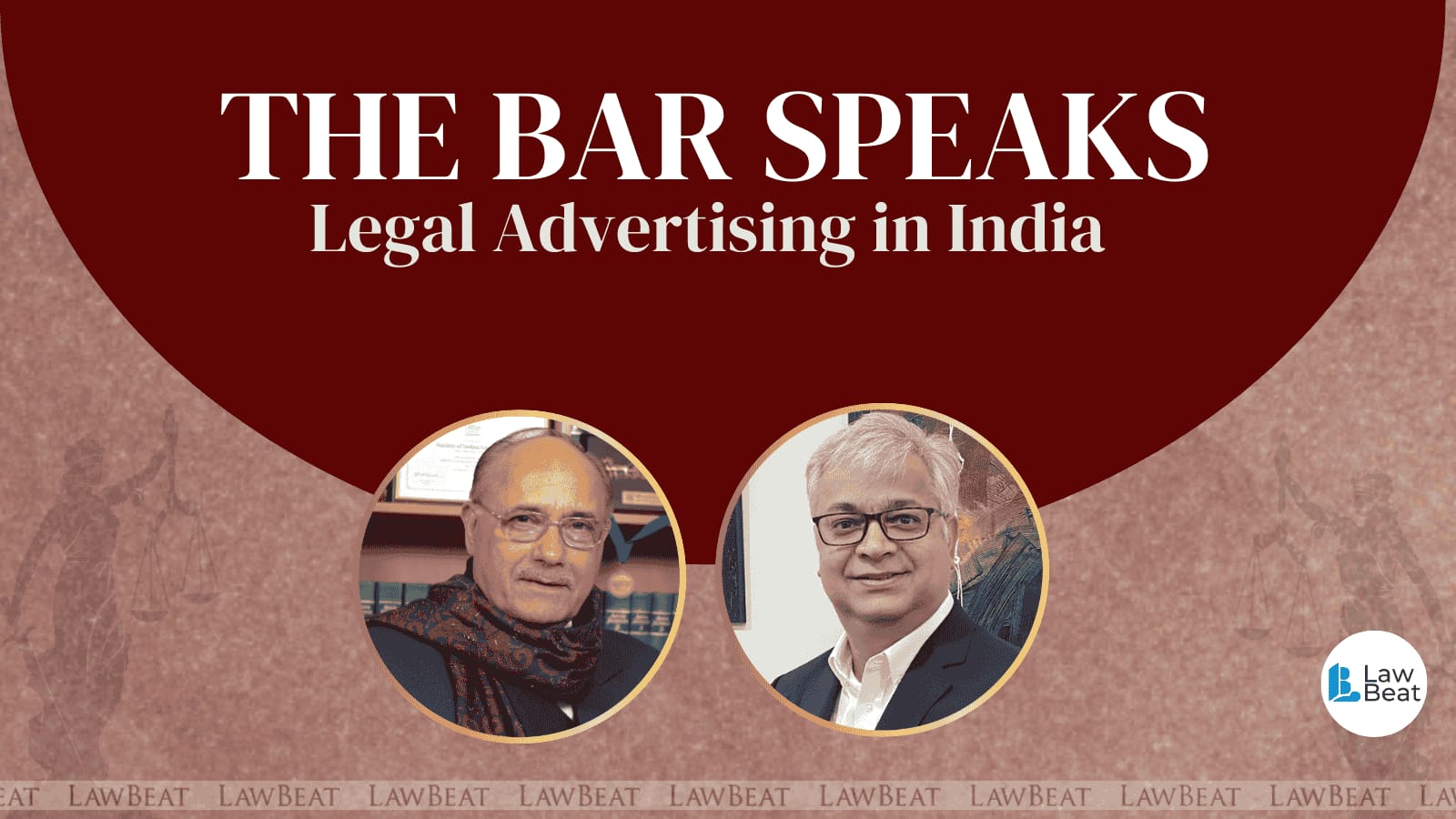BCI's Outdated Advertising Rules? Legal Fraternity Weighs in

Awareness shouldn’t be confused with solicitation, says President of the Society of Indian Law Firms, Lalit Bhasin, while Ravi Singhania of Singhania & Partners warns that flashy promotional videos could cross the line. This piece unpacks the controversy sparked by DSK Legal’s video featuring a celebrity, exploring if it's time for India to redefine what ethical legal advertising looks like in a digital-first world
The debate on law on advertisement by advocates and law firms in India reignited with a single post: a sleek promotional video featuring actor Rahul Bose, uploaded by DSK Legal to mark its two-decade milestone. What was, on the surface, a celebratory campaign showcasing the firm's longevity and competence, soon spiralled into a legal and ethical debate. The video, since deleted, drew sharp backlash from the Bar Council of India. But its implications now extend far beyond one firm or one video — they go to the heart of how India regulates legal advertising, especially in the digital age.
At the center of the debate stands veteran lawyer and President of the Society of Indian Law Firms, Lalit Bhasin, whose sharp and measured responses to the issue call into question not just the Bar Council of India’s notice to DSK Legal, but also the entire regulatory framework governing advocacy and outreach by law firms in India.
Speaking to Lawbeat about the storm the video triggered, Bhasin was unequivocal: “This is neither advertising nor soliciting work,” he said, calling it instead a legitimate effort to create awareness about the firm's capabilities. For him, the notion that a testimonial-style video — particularly one that doesn’t promise guaranteed success or make exaggerated claims — constitutes unethical solicitation, is rooted in an outdated understanding of the legal profession’s place in a digitally connected global economy.
However, offering a different perspective, Ravi Singhania, Managing Partner at Singhania & Partners LLP, acknowledged that testimonial formats, particularly those involving actors, “risk tipping into solicitation” — especially when they blur the line between education and self-promotion. “The line should be drawn at direct promotion that undermines professional integrity,” he said, noting that while the spirit of awareness is welcome, the format of expression matters.
On the issue of visibility and outreach, “You cannot compete globally without visibility,” Bhasin argued, pointing to the increasingly cross-border nature of legal services. "If someone in Zambia wants to consult a firm in Kanpur, how else will they find them?" For him, videos, thought leadership, and client testimonials fall squarely in the realm of “awareness,” not advertising. The issue, he suggested, is not whether the law firms are promoting themselves, but whether the regulatory outlook has kept pace with the realities of a global legal marketplace.
On that note, Singhania agreed that the current ban is out of sync with global trends. “India’s advertising ban does limit global visibility, especially in a digital era where cross-border opportunities are key,” he said. According to him, other jurisdictions have shown how a balance can be struck — where dignity is maintained without enforcing a total blackout on outreach.
Indeed, the contrast with international practices is stark. In the United States, the right to advertise was recognized by the Supreme Court in 1977. The UK and Australia too permit legal advertising with guardrails against misleading content.
By clinging to a rigid no-advertising doctrine, India remains an outlier — and risks leaving its legal talent behind, Bhasin warned.
He was quick to draw the line where needed: “We don’t want to see TV ads where lawyers promise compensation after an accident or guarantee a divorce outcome — that’s not our culture.” But he believed that barring law firms from showcasing their expertise, or publishing articles and videos about their work, is not just regressive but detrimental to the legal ecosystem itself. Such communication, he argued, promotes legal literacy, benefits younger lawyers, and serves the broader legal community — far from being a threat to the profession’s nobility.
Perhaps most significantly, Bhasin challenged the very premise that restricting such communication is essential to preserve the "noble character" of the profession. “We continue to be a noble profession,” he said firmly, citing the profession's contribution to India's freedom struggle, its role in governance, and the ongoing ethical commitment lawyers make as officers of the court. “It is absolutely erroneous to imply that law is no longer noble simply because a law firm makes a testimonial video,” he stressed.
He also addressed concerns that the current system disproportionately benefits large firms. While acknowledging that testimonial videos and professional marketing require resources, Bhasin argued that such initiatives are a product of teamwork, not individual self-promotion. “These videos highlight the efforts of the entire firm — from senior partners to associates. Young lawyers gain visibility and mentorship as part of that ecosystem,” he emphasised.
However, in contrast, Singhania added that the current system ends up favouring already established firms. “Young lawyers, in particular, face a disadvantage, as the current system often favors firms with built-in networks,” he pointed out. For him, “a balanced reform — allowing limited, tasteful awareness efforts — could better reflect modern realities without compromising ethics.”
At present, India’s bar on legal advertising is grounded in Rule 36 of Chapter II, Part VI of the BCI Rules, read with Section 49(1)(c) of the Advocates Act, 1961. The Rule prohibits direct or indirect solicitation — encompassing everything from newspaper comments to promotional interviews. But the rule was crafted in a pre-internet era. Since a limited amendment in 2008, advocates have been allowed to maintain websites carrying basic professional information. Beyond that, the restrictions remain largely frozen in time — even as law firms across the world adapt to new models of visibility and outreach.
Lawbeat reached out to DSK Legal for comment on why the video was taken down, after the firm described it as a testimonial rather than an advertisement, but did not respond to our request for clarification.
